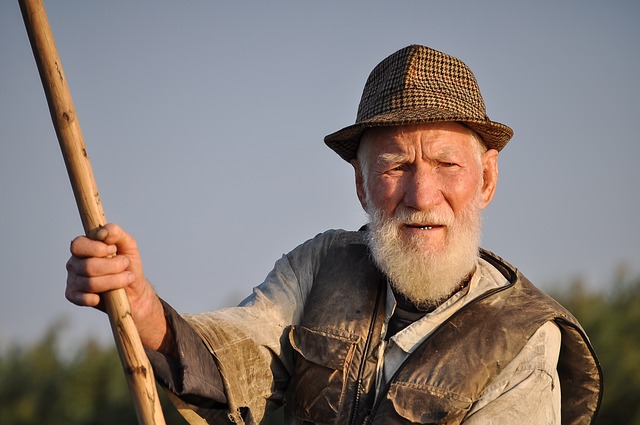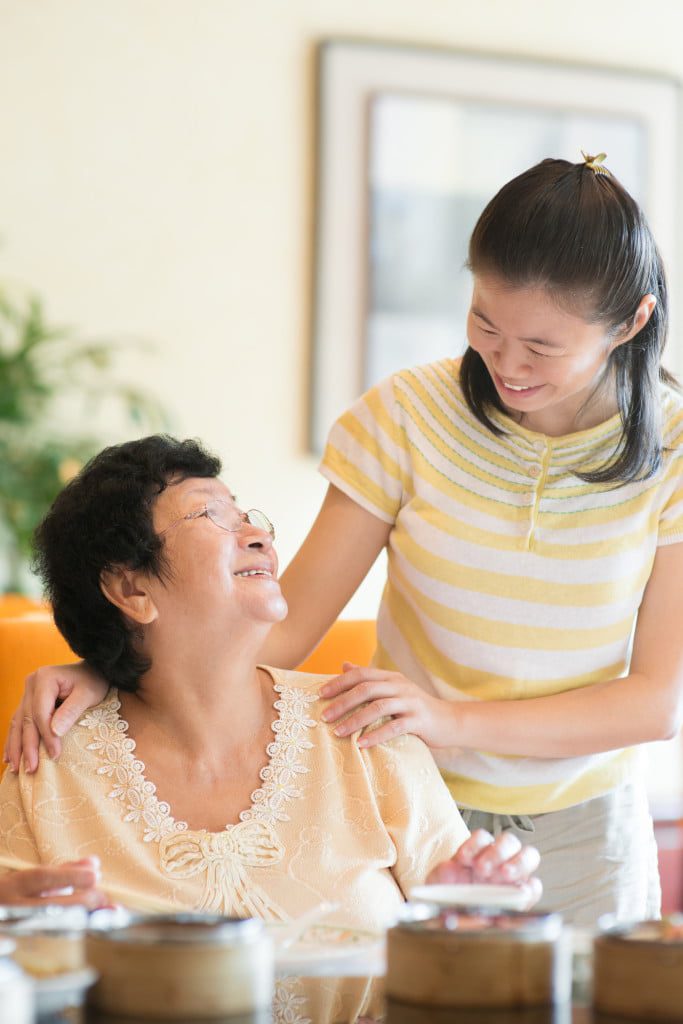Assuming My Authority as a Caretaker
 As my parents got older, I found myself becoming overprotective.
As my parents got older, I found myself becoming overprotective.
I didn’t want them to suffer or be scared, so I found myself making decisions for them and trying to protect them wherever possible.
In particular, I felt that I should be using my energy and youth to decide what approaches we should take in relation to their care and their health. In some ways, I felt that my parents simply couldn’t cope with making those decisions and that they wouldn’t understand the circumstances fully.
I was wrong.
Meddling in Our Parents’ Decisions
I believed that by making decisions for my parents, I was protecting them and protecting our elderly parents is a goal that many of us have. This approach is similar to the way that parents shield their young children from poor decisions and from their environment. But, our parents are not children and they are much more capable than we assume. By making decisions for them, we are robbing elders of the chance to control their own lives and guide their own direction.
We become so preoccupied with our own lives and ideas, that we forget what our parents, and people from their generation, have experienced. Throughout the course of their lives, they have faced many challenges and difficult circumstances, yet they have survived these.
Recognizing Our Parents’ Strength
After all, our parents did not grow up in an easy environment. They faced many severe challenges, including wars, financial crashes, poor access to health and education, few resources, transportation issues and many other issues. In many cases, their experiences were worse than our own, especially in relation to finances and access to health and education. Furthermore, if you’re considering seniors that come from developing word, you can multiply these challenges many, many times.
On top of all that, we also forget just how effective our parents (and their generation) were at overcoming the challenges of their environment. Despite all of the circumstances they faced, they were able to carve out a life. They were also doing this during a time of incredibly fast change, as technology dramatically altered the world around them. It’s so easy to forget the experiences that elders have been through, not to mention the value that they placed on learning and developing skills throughout their lives. This ability to learn helped them to become an important part of this fast-paced modern world.
Even though they are heading towards the end of their lives, elders still have many of their skills, along with a capacity to learn. Because of this, we often aren’t as effective in protecting our elderly parents as we think we are. After all, shielding someone who is fully capable isn’t the same thing as protecting them at all.
 I see this in my own family, as both of my parents loved to learn.
I see this in my own family, as both of my parents loved to learn.
My father tended to teach himself. He was naturally curious and was always interested in learning more. I am certain that he would have loved to study longer and learn much more than he did, even though he learned a lot in the course of his life.
On the other hand, my mother did have some challenges with learning. As a child, she had a very low amount of formal education and she developed an inferiority complex about this issue. But, she overcame this issue. For the first time, she started to enjoy a learning environment with people of her age, through book clubs, painting, group discussions and watching medical programs on TV.
My parents were both post-civil war children from Spain and education was not a priority in the post-war recovery strategy for a long time. When education finally did become a focus, my parents were already young adults. Because of this, they had to teach themselves the skills they needed to be successful and they continued to learn new skills throughout their lives. For example, they had to teach themselves a second language, while also learning how to adapt to a different society and environment.
The end result was that my parents went through a lot of challenges and remain strong and competent, even as they age.
Lifelong Learning and Growing
Growing older does not mean that a person’s learning is completed and many people continue to grow and learn even into their senior years. Modern neuroscience shows us that the brain does have the capacity to keep learning. Additionally, doctors are beginning to emphasize the importance of exercising the brain and using techniques to help keep thought processes and memory sharp.
Despite all of this, my experiences have shown me that families, organizations and caregivers continually underestimate the ability of seniors to learn. This is often so severe that the elders are often viewed as having a kindergarten-like ability to understand and learn. Unless there is a mental illness or another significant condition present, there is no reason to think that elders cannot be engaged and competent learners.
Valuing Seniors’ Opinions
Taking the time to recognize the strengths of elders and their willingness to learn is especially important when it comes to decisions for their lives. In particular, it is important to work with elders in decisions, including everything from their daily activities to major decisions on health, finances, will and other important areas. This approach is not just important, it is also a strategic decision for any caregiver to make.
An important first step is to take the time to talk to the elder openly about the situation and what needs to be achieved. This includes talking to them about why the specific situation exists and why specific goals need to be achieved. It’s also important to talk to them about the overall goal and ways that this can be reached. For example, an elder might focus on decreasing their sugar intake and improving their diet to lower the chance of going to a nursing home.
 Ultimately, processes for protecting our elderly parents need to occur with the support and consent of those parents as much as possible. Otherwise, the approaches just won’t be effective in the long-term.
Ultimately, processes for protecting our elderly parents need to occur with the support and consent of those parents as much as possible. Otherwise, the approaches just won’t be effective in the long-term.
Make sure that you also share your own perspectives with them.
This could include what you think and what you feel, along with what you can do in the situation and what you cannot do. This is also a good time to talk to the senior about the approaches that you feel they should take and why you favor those approaches.
Having an honest conversation with a mature older person tends to much more effective than making decisions for that person. Between the two of you, you can often come to a solution that is acceptable to both of you. But, make sure you also listen to what they have to say or the process won’t be especially effective.
Advantages of Having an Open Dialog
Giving an elder input into their own lives can have other advantages as well. For example, if a person is involved in making the decision to improve their diet (for example), then they are more likely to actually stick with that decision in the long-term. In contrast, a person who is forced into changing their diet is likely to rebel against the process.
However, this approach is not a magic formula and at times there will be disagreements and difficulties. After all, many seniors may not like the options or may want something that is unrealistic for their circumstances.
Nevertheless, involving elders in the decisions around their lives and their care helps to set a foundation for ongoing openness between you and the senior. After all, the elder is going to have different perspectives than you and may be able to think of approaches and solutions that don’t occur to you. It doesn’t matter how their lives have gone, they’ve done well; they’ve done their best.
Appreciate it. And learn from it.

Leave a Reply